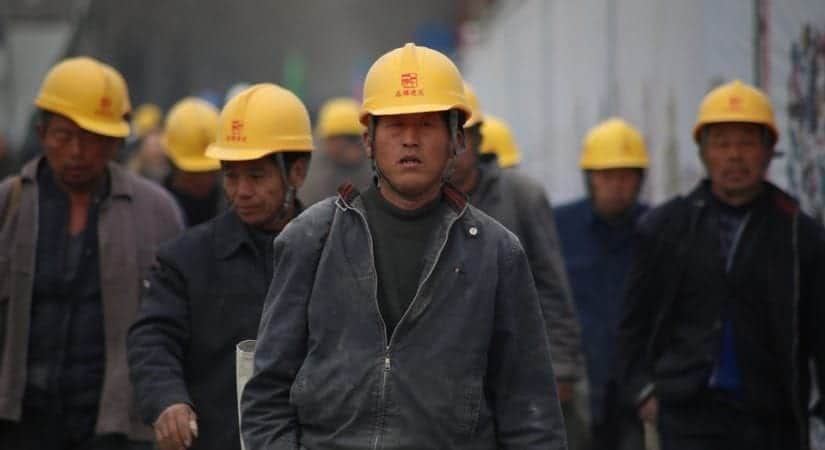The Transportation Worker Exemption and Warehouse/Distribution Center Workers

This blog post contains important information for people are warehouse and distribution center workers, as well as other workers who are involved in interstate or international commerce.
It is the third in a series of blog posts regarding the Transportation Worker Exemption (TWE), which exempts certain workers from the Federal Arbitration Act (FAA). The TWE is important because the FAA has been found to invalidate many laws and doctrines that, before they were struck down, protected employees and consumers from unfair arbitration agreements.
However, if an employee falls within the TWE, then the FAA does not apply. That means that the laws and doctrines that protect employees and consumers are not preempted by the FAA, and the employee is free to make use of them.
The Transportation Worker Exemption and Warehouse Workers
After the United States Supreme Court’s decision in Southwest Airlines Co. v. Saxon (2022) 596 U.S. 450, there is no question that workers who are actually engaged in foreign or interstate commerce fall within the TWE. That is true even if they work for a company that is not, strictly speaking, a transportation company. See Bissonnette v. LePage Bakeries Park St., LLC (2024) 601 U.S. 246. It is also true even if they are designated as “independent contractors” or “contractor drivers.” See New Prime Inc. v. Oliveira (2019) 586 U.S. 105.
However, workers who are “intimately involved” with interstate commerce, but do not themselves cross state or national borders, may also qualify for the TWE. In California, that may include warehouse and distribution center workers.
For example, in Ortiz v. Randstad Inhouse Services (9th Cir. 2024) 95 F.4th 1152, the court held that warehouse workers who transported Adidas products to and from storage racks within a warehouse were subject to the TWE. Ortiz is an important case because it clarifies that the workers at issue do not need to move goods out of a facility to fall within the scope of the TWE. To the contrary, such workers can play a direct and necessary role in the interstate commerce of goods. However, importantly, the workers in Ortiz actually handled the goods “near the very heart of their supply chain. In each case, the relevant goods were still moving in interstate commerce when the employee interacted with them, and each employee played a necessary part in facilitating their continued movement.”
Ortiz therefore torpedoes the reasoning in an earlier district court case, Lopez v. Nordstrom, Inc. (C.D. Cal. 2024) 2024 WL 3464170 (finding warehouse distribution center employee was not a transportation worker because his work “appear[ed] to focus most on handling [ ] garments, either packing them into boxes, sorting them, or hanging them up”). After Ortiz, such a worker would probably qualify for the TWE.
Similarly, in Nair v. Medline (9th Cir. 2024) 2024 WL 4144070, the Ninth Circuit Court of Appeals found that workers who packaged, moved, loaded, unloaded, and shipped medical supplies to interstate customer qualified for the TWE. The plaintiff in Nair alleged that she alleged that she worked every day in the “shipping dock” where she “spent 100% of [her] time stacking pallets and wrapping them in saran wrap to load onto trucks.” She also alleged that she loaded the delivery trucks every day with pallets that were prepared for shipping to destinations in and outside of California. The court found that because she packaged and loaded goods that traveled in interstate commerce, the plaintiff fell within a class of worker that plays a direct and necessary role in the free flow of goods across borders.
However, a 2024 district court case reached the opposite conclusion. In Villasenor v. Dollar Tree (C.D. Cal. 2024) 2024 WL 4452853, a judge in California’s Central District found that workers who merely provide administrative support at a warehouse do not fall within the scope of the TWE. In that case, the defendant presented evidence that the plaintiff staffed the front desk, answered the phone, and handled paperwork. It was undisputed that she did not physically handle any of the merchandise that was stored in the warehouse.
In light of those facts, the court found that the plaintiff belonged to a class of workers who provide administrative support, and that the relationship between such workers and the distribution of goods was not sufficiently close to establish that their work played a tangible and meaningful role in the progress of such goods in interstate commerce.
California warehouse workers may qualify for the transportation worker exemption, including workers who are designated as “independent contractors.” If you have questions about your rights at work, please feel free to contact Hunter Pyle Law, PC.


